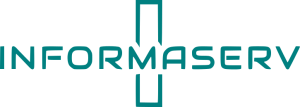Glossary: International Teaching Terms
Educators around the world use a variety of phrases and acronyms. Add yours to this glossary.

Special | A | B | C | D | E | F | G | H | I | J | K | L | M | N | O | P | Q | R | S | T | U | V | W | X | Y | Z | ALL
N |
|---|
N.B.Acronym that means Nota BENE from Latin, used in texts to draw attention to a point or an issue. | |
NAPLANAn Australian standardised test administered in years 3, 5, 7, 9. The acronym is short for National Assessment Program - Literacy and Numeracy. | ||
NATONorth Atlantic Treaty Organization | ||
NBMEThe National Board of Medical Examiners develop and manage the USMLE examinations for medical practitioners in the US. They have developed a large body of evidence and research around examination and question types in order to increase assessment validity. | ||
NEENecesidades Educativas Especiales | |
Needs AssessmentThe systematic process of determining goals, identifying discrepancies between actual and desired conditions, and establishing priorities for action (Lee & Roadman, 1991). | |
negative pronounA PRONOUN which standards for a negative NOUN PHRASE. The following words in English are negative pronouns:
For example:
Negative pronouns can function as NEGATORS. | ||
NetiquetteOnline manners. The rules of conduct for online or Internet users. | |
Netiquette rulesNetiquette comes from the mix of the words: Network and Etiquette and it refers to the norms or rules for online communication. "The Rules of Netiquette are social norms that individuals choose to follow facilitating effective communication on the internet. There are many accepted internet etiquette rules users follow for many different reasons. The core rules of netiquette are the most agreed upon netiquette rules." | ||

